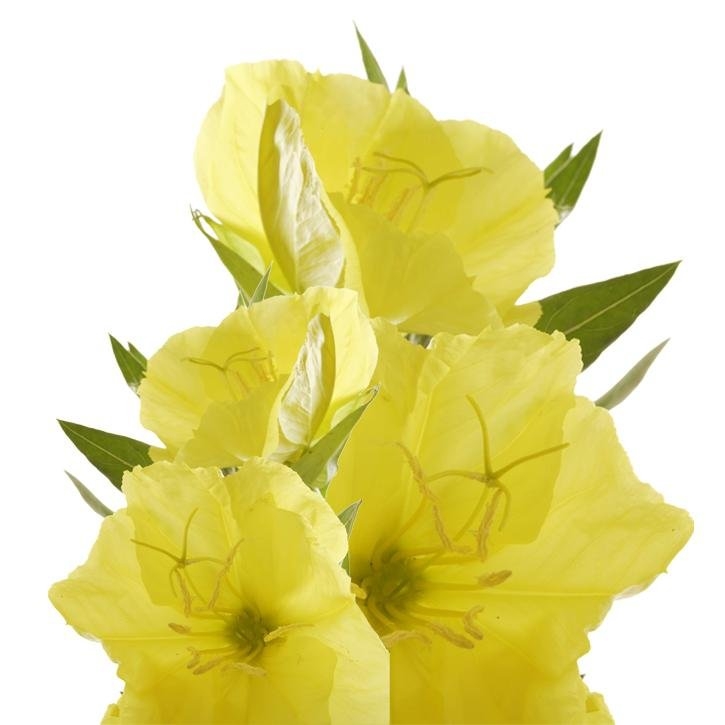Oenothera biennis L.
Description
Also known as donkey grass, it is a biennial plant with a robust stem that reaches 30-150 cm in height, with scattered, sessile and toothed leaves. The flowers are yellow, pentacyclic and epigynous. The fruit is a capsule containing numerous small, angular seeds (1 to 2 mm). It is native to North America and is now naturalized in Europe.
Part used
The seeds, from which the oil is obtained by cold pressing.
Active principles
- Oil (15-20%): composed of linoleic (65-80%), γ-linolenic (8-14%), oleic (6-11%), palmitic (7-10%) and stearic (1.3-3.5%) fatty acids.
- Other compounds: phytosterols, lectins, calcium in important quantities, proteins (15%), fiber (40%) constituted by cellulose and lignin.
Pharmacological action
- Emollient.
- Anti-inflammatory and antioxidant.
- Increases HDLc, decreases total cholesterol, LDLc, triglycerides and very low density lipoproteins (VLDL).
- Anti-platelet aggregation.
- Linoleic and γ-linolenic fatty acids are precursors of eicosanoids (prostaglandins, leukotrienes and thromboxanes), molecules involved, directly or indirectly, in numerous physiological processes. Deficiency of these fatty acids has been linked to conditions such as premenstrual syndrome, cyclic mastalgia, dry skin, inflammatory disorders (arthritis) or altered functioning of the immune system.
Indications
- Atopic eczema and skin conditions with dryness and/or itching.
- Manifestations of premenstrual syndrome: headache, irritability, breast swelling or tension, sadness, constipation, etc.
- Cyclic mastalgia.
- Increased cholesterol and/or triglycerides.
- Rheumatoid arthritis.
- Other uses: diabetic neuropathy, multiple sclerosis, menopausal discomfort, dry eye.
Contraindications
- Pregnancy and lactation.
- Epilepsy.
Precautions
Some cases of seizures have been described in undiagnosed epileptics, especially in schizophrenic patients or those taking phenothiazines (potentially epileptogenic).
Drug interactions
- Anticoagulants and antiplatelet agents.
- Phenothiazines.
Side effects
Mild digestive disorders (nausea, diarrhea), headache or exanthema may appear.
Bibliography
Monografía de la SEFIT (Sociedad Española de Fitoterapia).
Manual de Fitoterapia. Encarna Castillo García e Isabel Martínez Solís. 2ª edición Elsevier.
Mahboubi M. Evening primrose (Oenothera biennis) oil in management of female ailments. J Menopausal Med. 2019; 25 (2): 74-82
Senapati S, Banerjee S, Gangopadhyay DN. Evening primrose oil is effective in atopic dermatitis: a randomized placebo-controlled trial. Indian J Dermatol Venereol Leprol 2008; 74: 447-52.
Stonemetz D. A review of the clinical efficacy of evening primrose. Holist Nurs Pract 2008; 22: 171-4.
